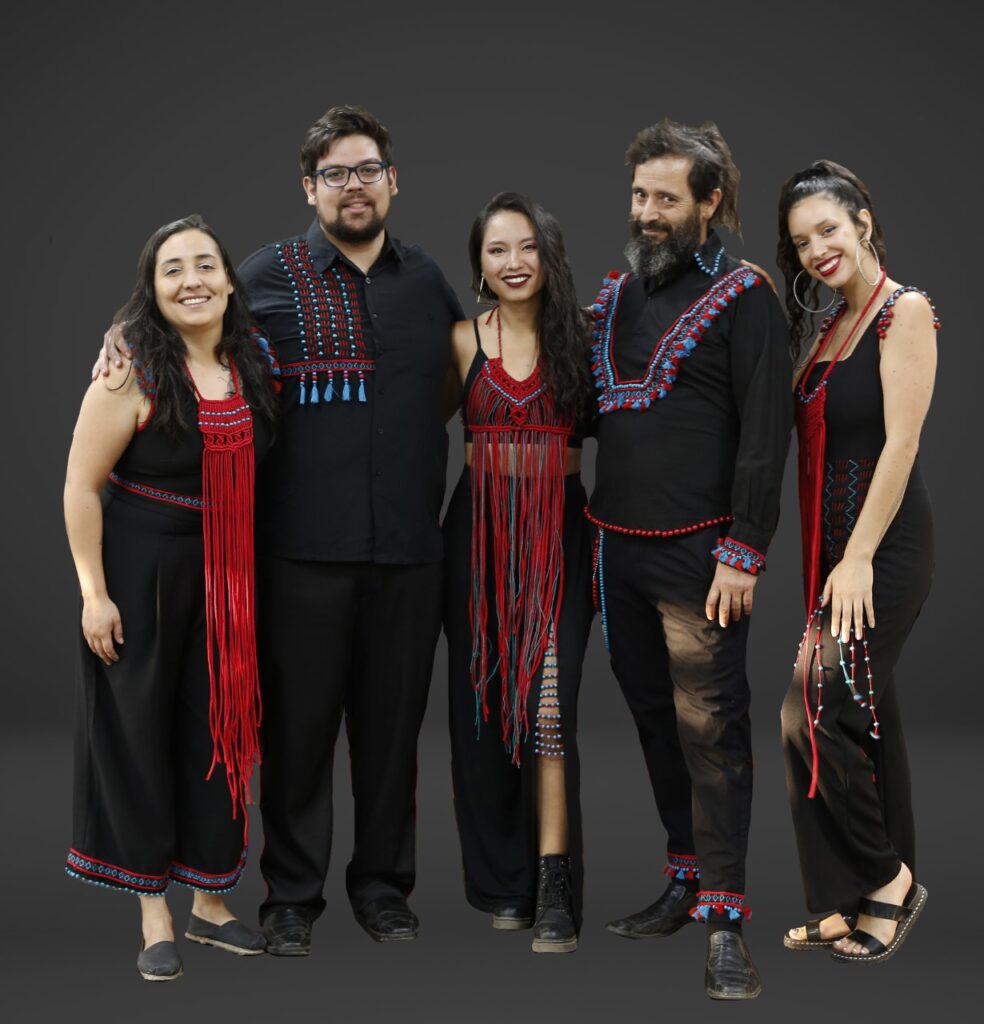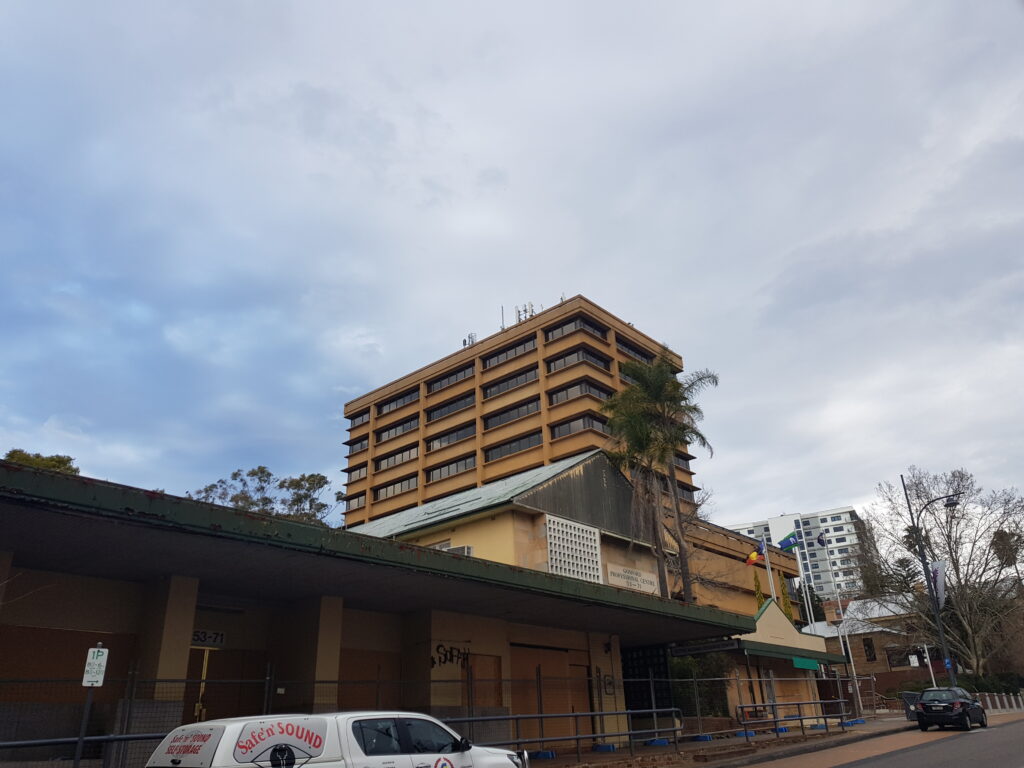Chilean composer and performer, Subhira (Rodrigo Cepeda), who is touring Australia for the first time with his talented quintet, has included the Narara Eco Village on his itinerary.

By Jacquelene Pearson
Subhira spoke to The Point about his 30-year career as a composer who has managed to fuse the ritualistic beats of First Nations South America with classical western music, folk and jazz to create something eclectic and unique that has moved audiences all over the world.
“I live in Santiago Chile, we all do, and we are touring Australia for the first time. The Port Fairy folk festival was the main motivation and from friends here we developed this tour,” Rodrigo Cepeda, whose musical name is Subhira, tells The Point.
“We just performed on Saturday at the Byron Bay theatre, it was fantastic, it was beautiful. We played in Maclean, it was beautiful in the community hall. It was sold out and full of people so it was very nice.
“It was also a beautiful concert as it was a commemoration of one year since the floods.”
Subhira describes himself as a composer.
“I studied undergraduate composition in the modern school of music. I specialised in South American music and then I did a post grad on classical western music. I have focused on Latin American, folk and Jazz and from there I learned to write popular music so I use all the language of the western popular music.”
“I started with the name Subhira in 1989 when I was 19 and I had a band at that time. We released two albums, the first was in 1990. The second in 1993 and in 1995 I released my first album as Subhira. I have had different bands playing the music.”
Subhira describes Chile as “a very interesting culture”.
“It is a mix of huge Spaniard influence but it is also like a multicultural country.
“Many people came from many different parts of the world. And there is local culture. Many first nations. I am very involved with two of them – the Mapuche and the Aymara.
“Mapuche culture is the main tribe of the south of Chile, of all of Chile actually. It is very active. It is a nation that didn’t lose the war against the Spaniard. They beat the Spaniards actually and the Spaniards achieved treaties with them. It was only 200 years ago when Chile became a republic that most of their land was taken.
“Nowadays the Mapuche are very active. They have had their lands taken over since the 1800s. It is a very unfair story. But it is a very unfair story everywhere for First Nations.”
The Mapuche music is very trans and very different – hypnotic, according to Subhira.
“It has another tuning way. It is not temporate like the western music. It is based on the harmonic scale. They don’t have in their language the word musician. The music happens for a ceremony for the whole town, to connect to the higher spirits. So it is very trans music with a very strong rhythm.
“The other is the Andean music from the desert, the music of the Aymara and Quechua who are Inkas. It is very strong with a very particular rhythm. This is the place where the Andean instruments come from, iconic from Peru, Bolivia and the north of Chile. I do nurture from that rhythm for our music also.
“The other influence I would say is jazz and a contemporary classical, progressive sound. We have the band with a full drum set, piano and my keyboard is a Hammond which is iconic from the 1960s combined with a cello and a violin, so there is a strong string part in the music and a flute and they are all classically accomplished musicians in the Quintet. They are high level musicians who play in the symphony orchestra.
“I would say the concert we are performing on this tour is a trip through all my different experimentations in music. We are representing the music of the first nations but played by a full symphonic orchestra.
“This concert with this quintet we are covering a wide range of emotions. Most of the music is inspired in nature and different rituals. I would say the concert is a trip of experimental music and different emotions.
“It is very eclectic but there is one thing that is driving the whole poetics which is really digging in to our culture and cultural music. That is why I work mostly on the world music scene but since it is open we also play in the folk festivals and the jazz festivals.
“That is why we describe ourselves as wild contemporary world music from Chile.
“The music has been very well accepted all over the world. We have played in major world music festivals and jazz festivals in many countries even though it is difficult to label.
“It is unique, it is not copying anything. It is very special music and still people can really empathise and relate into the music and get emotional. We got, in this tour, many people approaching us saying they cried or they were in a state of happiness, or they danced a lot. It is emotional music. It is uplifting.
“We are activists in terms of environmental and political issues. We like to bring a message of hope to keep on working for a better world.
“The languages, the musical languages blend in this concert.”
We return to talk about the state of contemporary humanity and the need for the wisdom of first nations.
“I would say it is very bad and it is very late in time compared to Canada and Australia but they went through the same suffering. They were invaded by another culture. They were taken off their lands, their pride, their sacred lands, their root for their medicine is on their land.
“It is a very difficult moment but there is a big awakening of respect and as you say, it is the same feeling in Chile. We need this wisdom from first nations. We need this respect for mother earth and they are all very different but there are things that unite them which is mostly the respect for the mother earth and the cycles of nature.
“I would say this is a particularly important moment. The Mapuche people are still fighting. They are not letting the people who are taking over their land cutting their trees. They wiped out hundreds and thousands of hectares of their nature to plant trees to produce.
“Others are still fighting to get into the congress to get into more political positions to regain what they deserve, their land, the right to go to school and get their land. Descedents are going back to learn their language and ceremonies. I am lucky to be part of this because I live in the south.
“The Mapuches kept their religion and their mission. The main philosophical way of living life is their vision. They are people with their own beliefs.”
Subhira says the current Quintet is “very diverse” with a range of ages including talented young musicians.
“Our work is very tight, very rehearsed, we get very into the music. There are three fantastic women performers who keep a special energy on stage. The drummer is an incredible woman, Rebeca Martinez, she is very strong and tight. We also have an incredible flute and violin player. Our players are often from the Chile Symphonic.
“The concert itself is fun. We go driving the audience into a trip and normally by the second half of the concert it is very upbeat and people have already danced a lot. They are very ancient rhythms and it is impossible not to connect with them.”
Tickets to see Subhira at the Narara Eco Village on Sunday, March 26 are available now.


